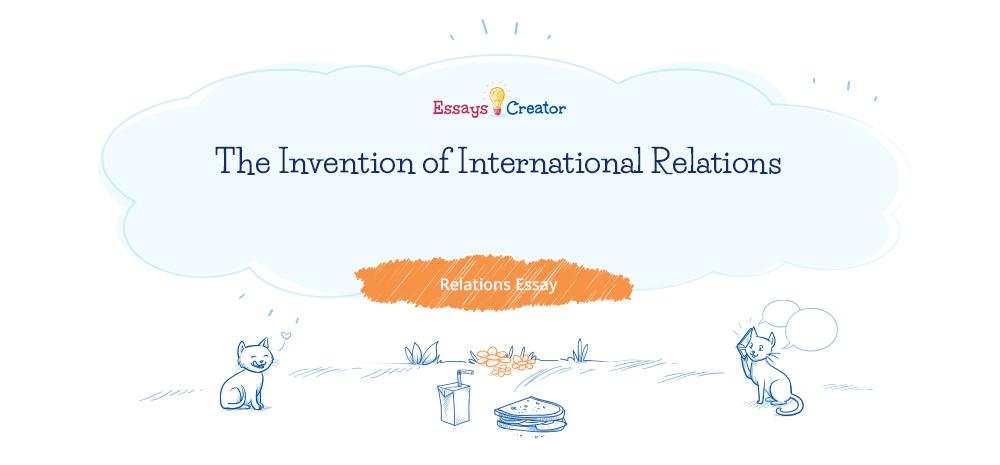
The Invention of International Relations Free Essay
The past years were marked by the growing interest in the history of the international relations field. One of the central questions facing professionals in the twenty-first century is whether at all the international relations field can be regarded as a discipline. The 1954 Conference on International Policies uncovered the profound disagreement among international relations scholars on what constituted the IR discipline and how the overall inadequacy of the IR theory was related to the quality and morality of international political decisions. The present-day field of international relations still lacks any single theoretical framework, and the essence of IR as a discipline can still be considered from more than one perspective.
It would be fair to say that the word “invention” has become a centerpiece in the analysis of the international relations field and its history. According to Kahler, “inventing implies the subjection of scholarly endeavors to the microscope of skepticism: Knowledge is neither cumulative nor defined by accepted methods that align it even more closely with an external and objective truth” (20). Kahler is confident that, like many other fields, international relations are a human invention, because knowledge is always a human creation that is greatly influenced by numerous external factors (20).
Order your Relations Essay help today!
The need for this “invention” is justified by the lack of a single theoretical and conceptual basis that would give birth to the international relations field. One of the most common themes in the invention of international relations is the paucity, or poverty, of the theory that would serve as a foundation for the subsequent evolution of the discipline (Butterfield & Wight 11). The science of politics relies on the body of knowledge derived from the prominent works of Rousseau, Hobbes, Mill, and Locke, but the international relations field does not have any theoretical equivalents (Butterfield & Wight 11). For decades, western scholars have been focused on evaluating the role of the state in politics, rather than on investigating the nature and roles of the international communities and nations. With time, the lack of a single coherent theoretical field became a serious impairment to the development of international relations as a system, a body of knowledge, and a science. The growing emphasis on ‘inventing’ the international relations field did not help to advance its theoretical message, as even the greatest debates did not lead to effective theoretical outcomes. The process of inventing international relations was constantly interrupted by the shifts from theory to practice and backward, depending on the socio-economic conditions of the time.
Scholars in international relations displayed different approaches to the field, depending on their theoretical stance. For instance, the 1954 debate between realists and idealists uncovered a deepening divide between the professional understanding of morality and IR theory. Realists insisted on IR theory is a matter of reason, prudence, and wisdom (Guilhot). Realism was found to be ill-suited for the political conditions of postwar America, but the development of IR as a field separated from politics promised to discard the naïve beliefs of liberalism (Guilhot). The great debates created a strong foundation for the emergence of new theoretical frameworks in IR, but the differences in the way theorists viewed the field of international relations were never resolved. Like many years ago, the present-day field of international relations lacks any system-field theories, while new postmodern questions emerge as to the essence and future of the entire international relations field.
In conclusion, the most prevalent theme in the discussion of the IR field is the lack of any single theory of international relations. This lack of theory justifies the need to consider international relations as a field that is separated from politics. At the same time, how scholars perceive the essence of international relations varies considerably, depending on their theoretical stance. Due to these differences, no single system-field theory of international relations has been developed so far.

